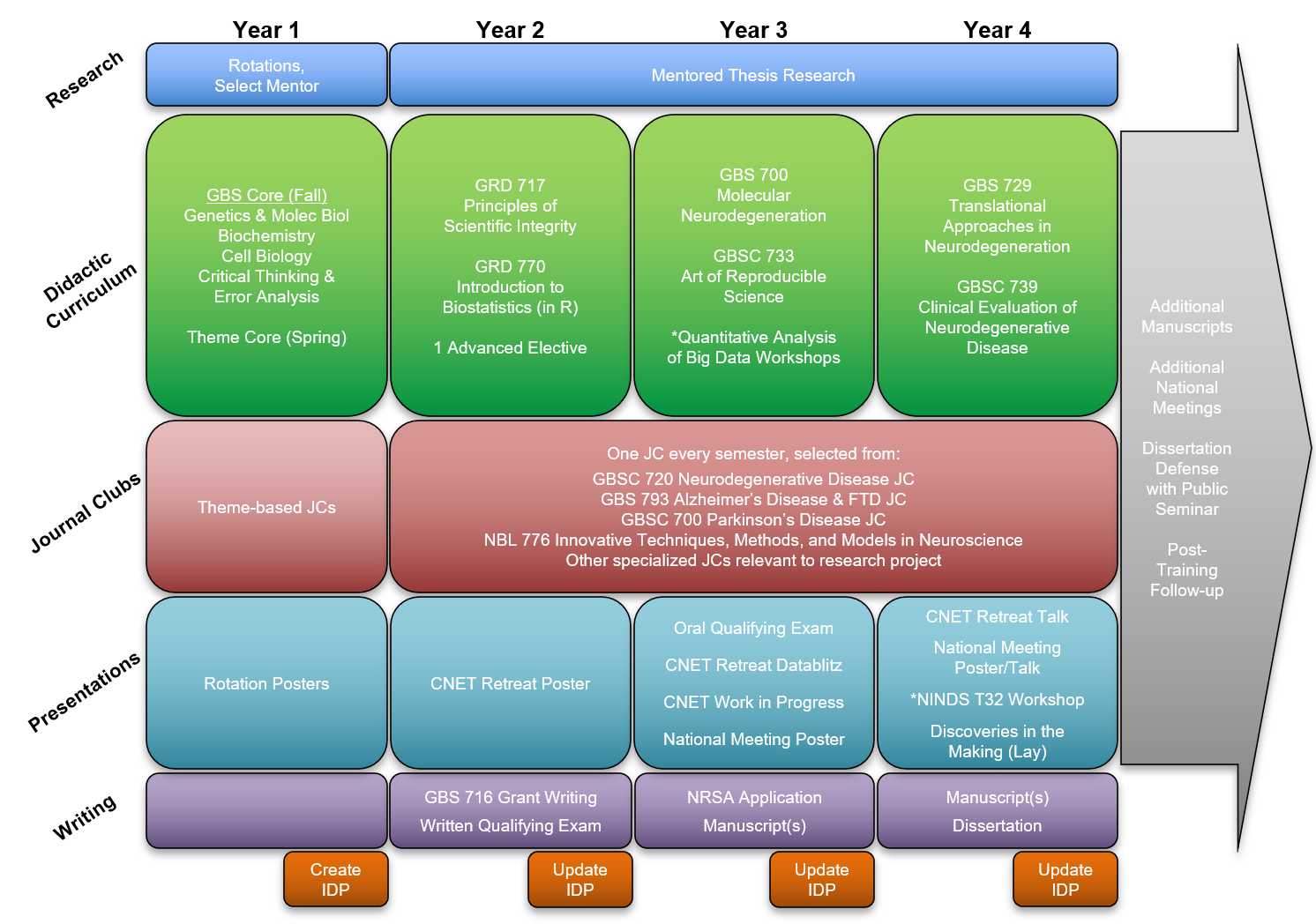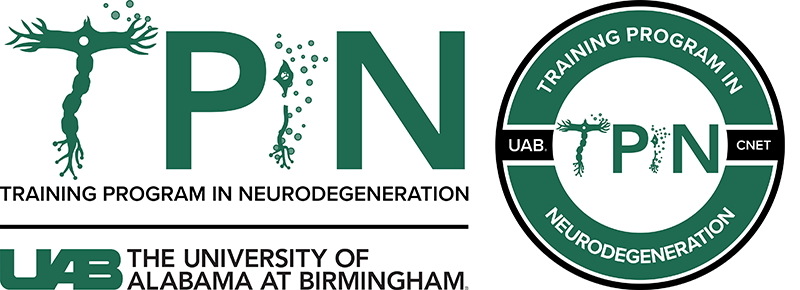The Training Program in Neurodegeneration aims to promote the development and success of trainees at all levels (undergraduate, graduate, and postdoctoral) who are interested in pursuing careers in the field of neurodegeneration research. The Ph.D. program pipeline is below, while the information for undergraduates and postdoctoral fellows can be found HERE and HERE. Watch this video to hear more about the amazing neuroscience research going on at UAB.
The Killion Center has developed a rigorous Training Program in Neurodegeneration (TPiN) curriculum of didactic coursework, journal clubs, and professional skills development activities. All students in Killion Center labs are required, and any student working on a neurodegeneration-related research project at UAB is welcome, to participate in TPiN. The TPiN is supported by an NIH training grant (T32NS095775), the Parkinson Association of Alabama (PAA) Scholar Award, and the Alzheimer's of Central Alabama (ACA) Scholar Award.
Overview of the TPiN Curriculum

Core Neurodegeneration Courses
- GBS 700 – Molecular Neurodegeneration. This advanced course covers several of the most important molecules involved in neurodegenerative disease, including Aβ, tau, apoE, TDP-43, α-synuclein, LRRK2, prion protein (PrP), and Huntingtin (HTT). The goal is to develop a deeper understanding of each protein’s normal structure/function and how these are altered in neurodegenerative disease by genetic changes or posttranslational modifications.
- GBS 729 – Translational Approaches in Neurodegeneration. This course uses the field of neurodegeneration as a vehicle for conceptualizing the failures, current challenges, and successes of different translational approaches. This course emphasizes active learning principles by placing students into scenarios of direct relevance to a career in science (e.g., emulation of study section discourse, formal critical debate that happens at international symposia, and informal discussions between colleagues).
- GBSC 739 – Clinical Evaluation of Neurodegenerative Disease. The goal of the course is to provide clinical exposure to the evaluation and care of patients with neurodegenerative disorders. Objectives are for students to become familiar through direct patient contact with the signs and symptoms of common neurodegenerative disorders and with approaches to evaluation and treatment of common neurodegenerative disorders. The course is structured in a series of “modules”, each composed of a one-hour classroom/didactic session and a ½ day practicum component. Modules include AD/ADRD, PD, HD, Ataxias & MSA, and ALS, each with time spent shadowing physicians in these specialty clinics.
Journal Clubs
- GBS 720 – Neurodegeneration Journal Club.
- GBS 793 – Alzheimer’s Disease and Frontotemporal Dementia Journal Club.
- GBSC 700 – Parkinson’s Disease Journal Club.
- NBL 776-01 – Innovative Techniques, Methods, and Models in Neuroscience.
Applying for a Position as a Graduate Research Assistant in a CNET Laboratory
All students who are in the TPiN Graduate Training Program are enrolled in a Ph.D. training program at the University of Alabama at Birmingham, either through the Graduate Program in Biomedical Sciences (https://www.uab.edu/gbs/home/), the Behavioral Neuroscience Program (https://www.uab.edu/cas/psychology/graduate/behavioral-neuroscience), or the Biomedical Engineering Graduate Program (https://www.uab.edu/engineering/bme/graduate). Enrollment in one of those programs is required for participation in TPiN at the graduate school level.
